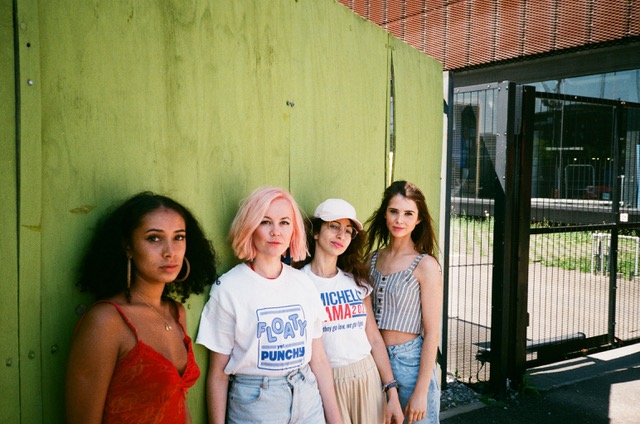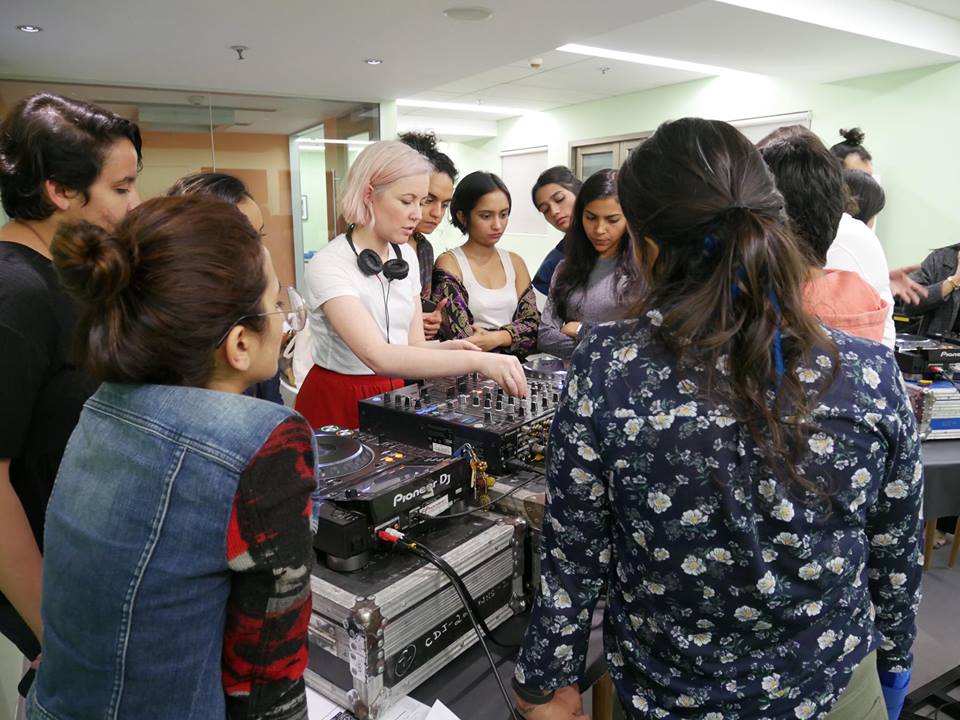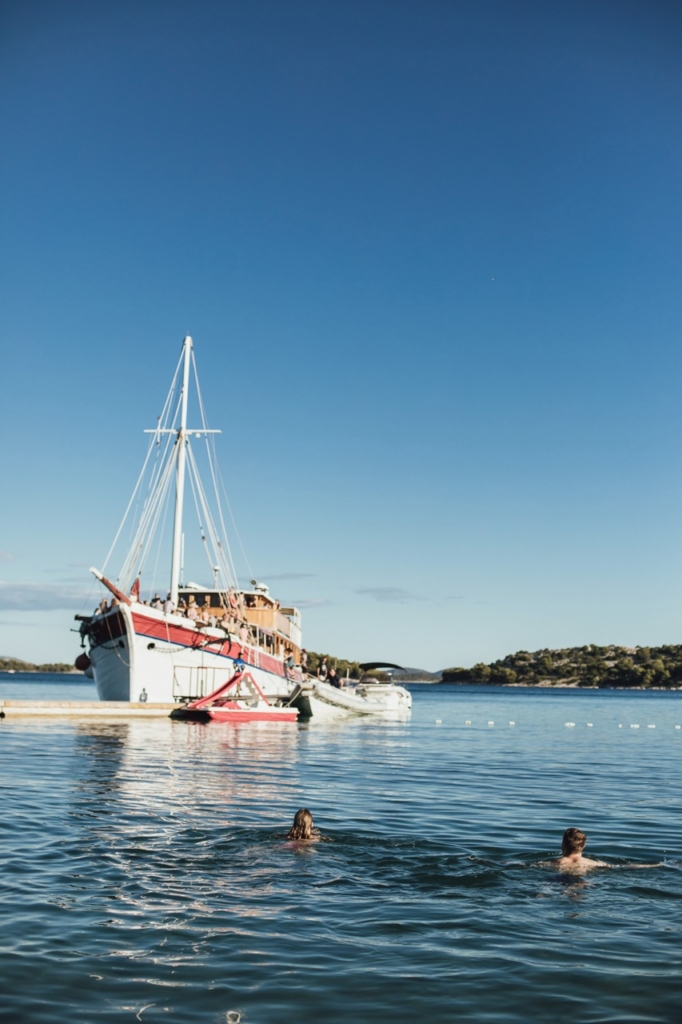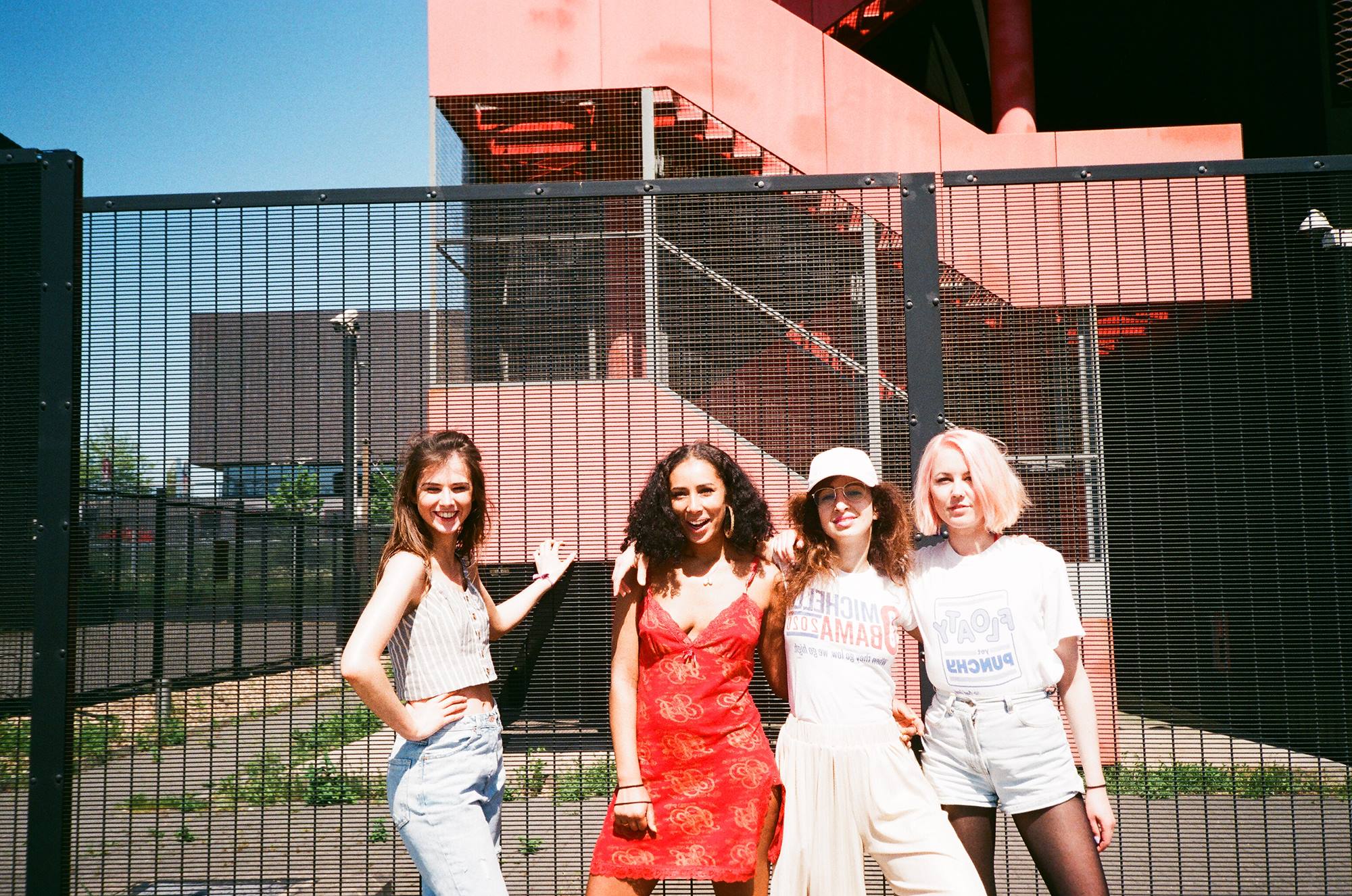Over the last few years, DJ collective Rhythm Sister have been supporting and raising awareness on women and non-binary artists within the scene. Through their community group, they have created a forum-like safe space where people can ask for advice and open discussions around issues their facing in the industry. On a wider scale, Rhythm Sister organises workshops, parties and panels across the UK as well as playing sets at festivals around Europe including Love International, Queen’s Yard Summer Party and Farmfest. They also recently held a 3-day workshop in India followed by a string of dates. Late last year, Rhythm Sister launched a 50/50 mix series where they ask curators to include 50% or more of its content to be created by womxn or non-binary people. The series is in collaboration with domestic violence charity Refuge and alongside each mix, there will be limited edition prints designed by Bristol-based artist Danielle Doobay – with all proceeds going to the charity. So far, the mix has seen contributions from Zipporah, Banoffee Pies, Nadia Ksaiba, Jaye Ward and A Boy From Outer Space.
Ahead of their performance at Love International, we catch up with Jess Farley and Liv Ayers to discuss the benefits of working as a collective, their 50/50 series and how promoters can take their ethos on board and some of their favourite memories from the Croatian festival.
There have been more and more collectives popping up over the last few years, what do you think are the benefits of working in a collective? What power and dynamic do they add to the scene?
Being in a team has loads of benefits, a combination of skill sets all working toward a joint goal, everyone supporting each other and a group of people representing the project and pushing the same message. The number of collectives cropping up sends out a powerful message to the scene, power in numbers! Plus DJing with others means you’re constantly discovering and sharing music with each other.
Do you feel that each of you bring something different to Rhythm Sister? If so, what?
There’s a few of us now who contribute to the project in various capacities, we all have our different qualities and experience which helps. Most importantly different personality types create balance and flow.
Could you tell us about some of the female & LGBTQ figures that have inspired Rhythm Sister over the years?
Munroe Bergdorf is doing incredible things for the LGBTQ+ community and womxn in general with her eloquent and on point activism. Room 4 Resistance. Jaye Ward is a constant inspiration with her passion, insane selection and musical knowledge. Willow is an amazing producer. Gwenan. Jayda G. Eris Drew. Discwoman. Rachael Williams from Rye Wax. Emma Kroeger from Dalston Superstore. And in general all the unsung heroes in music and behind the scenes who are working hard and pushing their art amongst all the noise and struggles we still face.

Since the collective started, do you feel any of the issues you plan to tackle as a collective have been resolved or close to being resolved?
We could spend a long time discussing this one. There have been definite improvements, but also sometimes feel we go backwards. Awareness has got better and equality in music is a pretty hot topic, this is as a whole positive. For example, it’s socially unacceptable to behave in ways that are discriminative towards others, however, whether or not that’s actually completely changed people’s attitudes is a different discussion. Staying positive is important but I do think to acknowledge that injustices are still happening is quite crucial to ensuring that change continues. It’s going to take a lot more than social media posts, brand endorsement etc to unravel centuries of the patriarchy and toxic masculinity. You can print out a safe space policy and put it on the walls of the venue of your party and include it in your event blurb, but acting on it and ensuring your space is actually safe is a different matter entirely.
How do you feel the internet has helped with getting your voices heard?
It means we’re not an island. If we solely operated in physical space it would be easier to be isolated, whereas the interconnectedness of the digital space means we can get our message to corners we wouldn’t have necessarily been able to pre-internet. It’s been a bit part of our community and staying in touch with people, and it’s how we all met!
Can you tell us about your ongoing work with Balamii?
Our Balamii radio show is an amazing platform for us to share our music and different sounds, plus showcase incredible guests from London and beyond. It’s been a pretty integral part of our musical journey having a regular slot and has helped us become better DJs, massive thanks to James and the team for the support.
You’ve covered DJ workshops, radio show, mixes and parties, are there plans to expand any further?
We’ve just finished an amazing 3-day workshop for women in India, plus did a tour there with The Wild City, it was incredibly emotional and inspiring. There’s similar workshop projects on the horizon and more exciting gigs and stage hosts this summer!

Last year you launched the 50/50 mix series in collaboration with Refuge, how did this concept come about? What do you hope people take away from this series?
There is still a disproportionate number of visible male artists vs non-male artists so thought up ways to tackle this. The 50/50 mix series asks artists to create mixes where at least 50% of the tracks are made by womxn and non-binary people. We wanted to show that female-identifying and non-binary artists are not few and far between and improve the representation of all the talented producers & musicians out there. We wanted to donate to Refuge as it’s close to our hearts, some of us have unfortunately been through things that the charity helps other women with. We wanted to extend a helping hand to women outside of the music scene.
Given your 50/50 approach to the mix, series is what most festivals are aiming to achieve by 2020 – how do you think they could speed the process? How do you discover female/non-binary/ LGBTQ artists, are there specific platforms or groups you go to?
Promoters need to be less lazy with their bookings, and that includes looking outside of their networks/friendship pools and also have the responsibility of finding womxn/nb artists that fit musically on their line ups.. The music scene as a whole needs to do more to make the scene more accessible to womxn from ALL walks of life, especially those from disadvantaged backgrounds. The scene can be very elitist as with any art form and we need more womxn accessing music from a young age. We discover womxn, nb, LGBTQ artists like we do male artists, internet, radio, mixes! Getting into a good habit of digging regularly and discovering new music means you’ll no doubt come across great non-male artists.
You’ll be playing at Love International again this summer, what are some of your favourite memories from the festival over the years?
Watching the sun rise behind the trees at Barbarella’s club and looking around and seeing friends from all different parts of your life on one dance floor. Ah it’s so magic. Ben UFO Crack Magazine boat party back in 2017, all of Rhythm Sister there for the first time dancing together, meeting some of our best friends there.

How do you differentiate your festival set from the usual club performance?
Entirely depends on the situation! For our takeover on the Olive Grove at Love International expect some sunshine grooves and some b2b2bs 😉
Your top tips for surviving a festival in the heat of summer?
Rehydration fluids, a good breakfast, berocca tonics (vodka, berocca & tonic water) & not too much buckfast!
You can catch Rhythm Sister at Love International from the 3rd to 10th July – tickets here.
